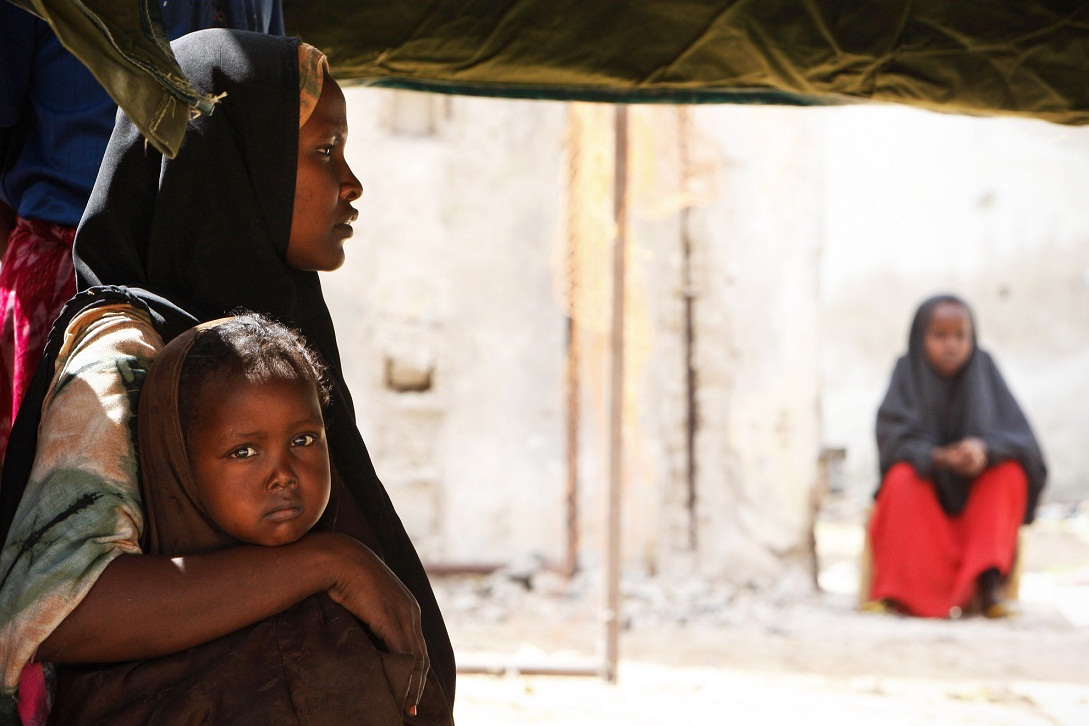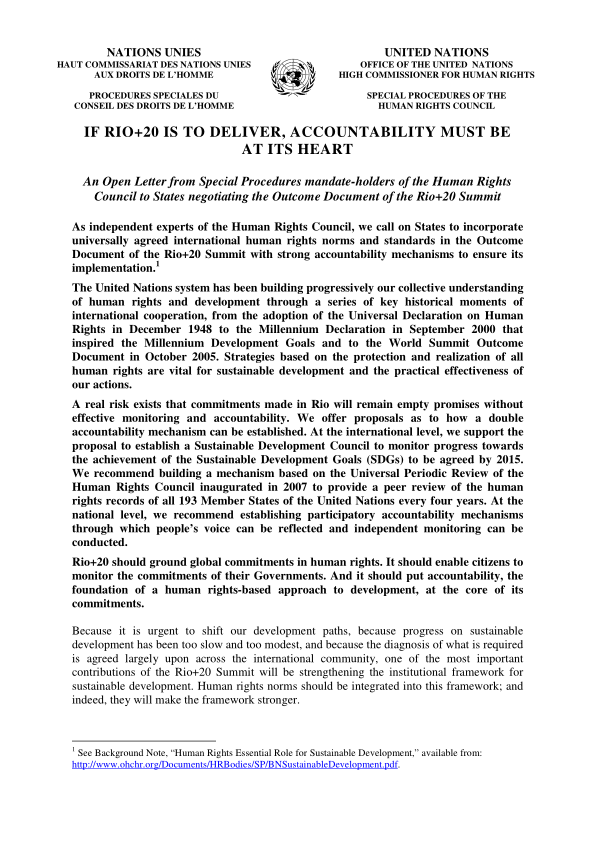In an open letter to world Governments, a group of 22 UN independent human rights experts called on States to incorporate universally agreed international human rights norms and standards with strong accountability mechanisms into the UN Rio+20 sustainable development conference’s goals, as the Rio+20 first round of informal-informal negotiations began today in New York.The full text of the letter can be accessed in pdf format here. “Global goals are easily set, but seldom met,” the rights experts warned, raising the bar for what the conference can and should achieve. “A real risk exists that commitments made in Rio will remain empty promises without effective monitoring and accountability,” they stressed less than a hundred days before the conference starts.
“Global goals are easily set, but seldom met,” the rights experts warned, raising the bar for what the conference can and should achieve. “A real risk exists that commitments made in Rio will remain empty promises without effective monitoring and accountability,” they stressed less than a hundred days before the conference starts.
The second Rio Summit, Rio+20, is expected to lay the foundations for a set of global Sustainable Development Goals to complement and strengthen the UN Millennium Development Goals created in 2000.
“Learning from the mistakes of the Millennium Development Goals, the new sustainable goals must integrate the full range of human rights linked with sustainable development, and human rights must be the benchmark for whether or not inclusive, equitable and sustainable development is occurring,” the independent experts said
Twenty years after the UN Conference on Environment and Development in Rio de Janeiro, and ten after the World Summit on Sustainable Development in Johannesburg, the mounting effects of climate change and environmental degradation have raised the stakes further. Both the Goals and the means of reviewing progress must be based on human rights from the start.
“Human rights have guided sixty-plus years of progress by providing a legal baseline for political actions,” they said. “Human rights must now be the glue in Rio: they must bind countries to the commitments they make. States have an opportunity in Rio to create the transformative changes needed or else fare no better than in previous global attempts in this regard.”
A double accountability mechanism
The experts suggested that Rio+20 could establish an international accountability mechanism similar to the Human Rights Council’s Universal Periodic Review, which subjects each country’s human rights record to a State-led peer review on the basis of information submitted by the country concerned, UN entities, civil society and other stakeholders.
At the national level, Governments should establish their own national accountability mechanisms, including independent monitoring and civil society participation, in order to evaluate progress towards achieving the Sustainable Development Goals.
This double accountability mechanism would help to ensure that these goals are more enforceable than previous international ones, and to enable the full realization of human rights, including the right to development. Human rights mean prioritizing the most marginalized and vulnerable in pursuit of the Sustainable Development Goals. It means that action can be corrected when progress is uneven or is achieved at the expense of certain groups. The fulfillment of human rights is the litmus test for whether or not sustainable development is occurring.
“Science tells us that we are reaching a set of environmental tipping points. We must therefore make Rio+20 the political tipping point. Our futures and planet are at stake, and we have three months to shape the ideas and political consensus that this huge task requires.”
Photo: A woman and her child await free medical services provided by Ugandan and other personnel of the African Union Mission in Somalia (AMISOM), at Qatar Camp for Internally Displaced Persons (IDPs) in Mogadishu.Picture courtesy of UN Photo.
